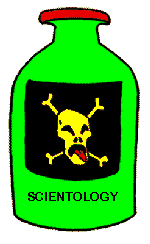
Some of the material I read was critical of Paganism and the neo-Pagan revival. The vast majority of this criticism was, and is, written by Fundamentalist Christians, who, I came to discover, had (and have) very little actual knowledge of Paganism and neo-Paganism. Most incorrectly link Paganism and neo-Paganism to "Satanism." I read a great many books and articles written by Fundamentalist Christians who castigated Paganism as "Satanic:" material written by:
Of course I learned that such books are complete fictions, and that the authors who wrote of commiting such crimes, when pressed to present evidence or name names, manufacture every imaginable excuse to refuse to produce such evidence.
Anyhow, I discovered that most of the criticism against Paganism and neo-Paganism was without value: manufactured out of a sense of what these Christian authors believed to be their duty to their god, their church, and (financially) themselves.
This "soured" me against criticism of all religions.
One day Time Magazine published a story called "Scientology. The Thriving Cult of Greed and Power." Time Magazine, May 6, 1991, page 50. Opening page read:
The Thriving Cult of Greed and PowerI had heard about the Time Magazine article on FidoNet, but I did not read it--- and yet I castigated it as being the same "hatchet job" that Fundamentalist Christian authors perform when writting about Paganism and neo-Paganism. I denounced the article to my friends and electronic correspondents over the nets, as just another attack against a minority religion. I saw the Time Magazine issue on sale at the store, and refused to buy it. I considered the issue a religious freedom one (an issue that is near and dear to my liberal heart), and I thought Scientology was getting a bum deal.
Ruined lives. Lost fortunes. Federal crimes. Scientology poses as a religion but really is a ruthless global scam -- and aiming for the mainstream.
by Richard Behar
But then someone posted the article in a newsgroup on the Internet. I read the article, and discovered I had been very badly wrong about the article.
The first thing I learned is that Scientology is not a religion. That was a shock: I had thought it was, based upon what members had told me. I also learned that the crime syndicate has a history of criminal activity, including:
"In addition to violating and abusing its own members civil rights, the organization over the years with its "Fair Game" doctrine has harassed and abused those persons not in the "Church" whom it perceives as enemies. The organization clearly is schizophrenic and paranoid, and this bizarre combination seems to be a reflection of its founder [L. Ron Hubbard]. The evidence portrays a man who has been virtually a pathological liar when it comes to his history, background and achievements. The writings and documents in evidence additionally reflect his egoism, greed, avarice, lust for power, and vindictiveness and aggressiveness against persons perceived by him to be disloyal or hostile." --- Los Angeles Superior Court Judge Paul G. Breckenridge, Jr., 1984 (Scientology v. Gerald Armstrong, Case No. C 420153)Yes, Scientologists have bizarre, impossible, even insane and psychotic beliefs: everyone is entitled to hold what beliefs they choose (or choose not to choose). What I criticize is the CRIMINAL, IMMORAL, AND UNETHICAL ACTIONS of the crime syndicate.
One could say a great deal more about the crime syndicate of Scientology, but I'd rather let their own actions condemn them. Read the links, and follow the appalling trail of criminal behavior that is part and parcel to the everyday activities of the crime syndicate.